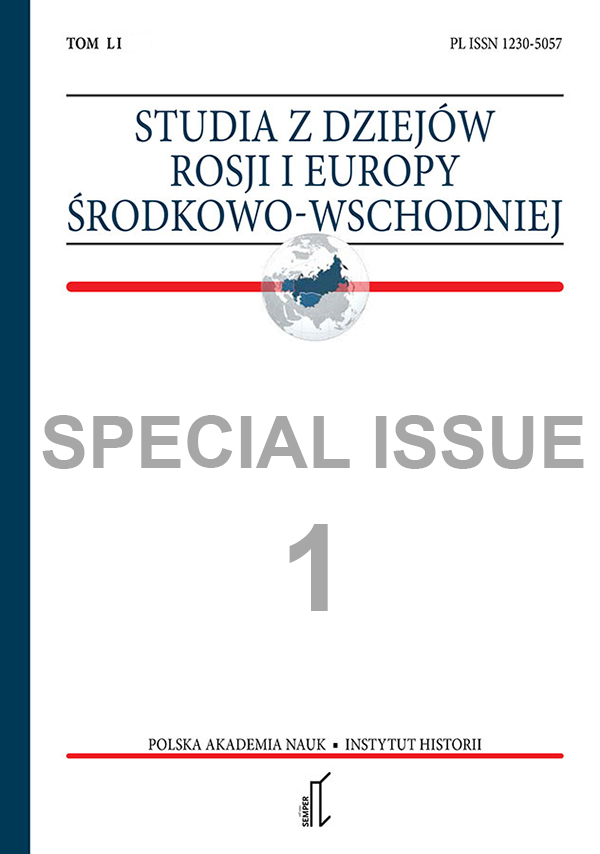The depreciation of the great jubilee: the celebrations of the 1150th anniversary of Russian statehood in Novgorod the Great (2012)
The depreciation of the great jubilee: the celebrations of the 1150th anniversary of Russian statehood in Novgorod the Great (2012)
Author(s): Mikołaj BanaszkiewiczSubject(s): Diplomatic history, Economic history, Political history, Social history, Recent History (1900 till today), Transformation Period (1990 - 2010), Present Times (2010 - today)
Published by: Instytut Historii im. Tadeusza Manteuffla Polskiej Akademii Nauk
Keywords: Russia, liberalism; commemoration; collective memory; Alexander II; Dmitry Medvedev;anniversary of Russian statehood;
Summary/Abstract: The article is devoted to the subject of the 1150th anniversary of the Russian Statehood celebrated in September 2012. It was the liberal political commentary writings accompanying the original model of the jubilee celebrated in 1862 that was used as the point of reference of the rhetoric of the celebrations’ initiator, the President of Russian Federation Dmitry Medvedev. This made the president of Russia refer very often to the “Epoch of the Great Reforms” (the 1860s, and 1870s). The article describes the course of the jubilee celebrations with accompanying information campaign in the public mass media, as well as a failed legislative action to make the symbolic anniversary of the origins of the Russian Statehood a National Day. In the conclusions, the author distances himself from the absolutisation of political causes (customary in the Polish writing blaming of the low political culture of the power elite) of the jubilee’s failure. In the author’s opinion, the main reason for the fiasco of the analysed enterprise lies in the difficulties to create a coherent historical narration which would combine various political traditions and their fundamental values.The research, making the fundamentals of the text, subscribes to the interdisciplinary studies – flourishing in Poland these days – of collective memory and identity. The research perspective chosen by the author makes it possible to enrich the traditionally understood political history and history of ideas with the most recent achievements of historical anthropology. The purpose of this is to present not only a cultural context of the symbolic dimension of ars regendi (with the problem of legitimization of power at the lead), but also to discover the sources for the durability of symbols as invisible bonds tying the political community.
Journal: Studia z Dziejów Rosji i Europy Środkowo-Wschodniej
- Issue Year: 51/2016
- Issue No: 1
- Page Range: 169-197
- Page Count: 29
- Language: English

